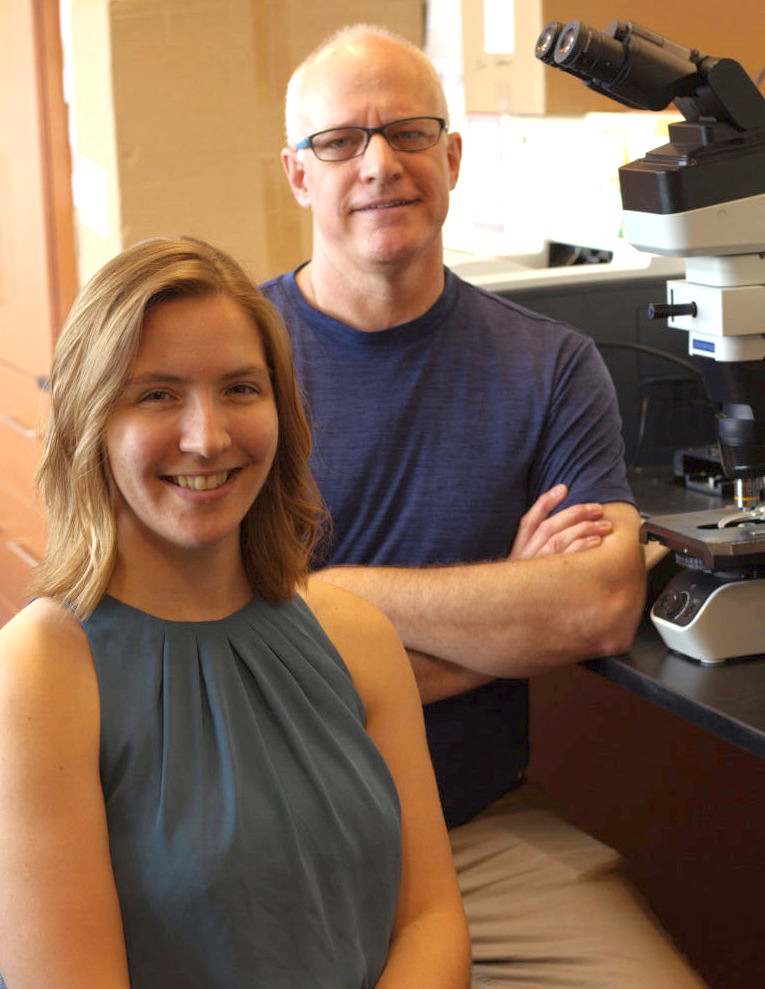Improved treatment of an aggressive form of human bladder cancer may ultimately come from a new international genetics study co-authored by University of Guelph researchers on a similar disease in dogs, cats and cows.
In the most comprehensive cross-species genetics study of its kind, the team uncovered so-called “driver genes” and gene mutations in dogs and cats with urothelial carcinomas (UC) that resemble muscle-invasive bladder cancer (MIBC) in people.
Clinicians might use the results to help zero in on key genes as therapeutic targets for treating the disease in humans, said co-author Dr. Geoff Wood, professor in the Ontario Veterinary College’s Department of Pathobiology.
“This is the first sequencing of all the coding DNA of canine and feline bladder cancer,” said Wood, referring to genes that code for making proteins.
The research, which appears in the journal Genome Biology, involved more than 50 researchers from 17 countries, led by Dr. Louise van der Weyden and Dr. David Adams at the Wellcome Sanger Institute in Cambridge, U.K. Along with Wood, the team members from five continents included Latasha Ludwig, a U of G PhD candidate and doctor of veterinary medicine grad.
Highly aggressive cancer, poor prognosis

MIBC is highly aggressive in people and has a poor prognosis. If the disease spreads in the body, the patient’s five-year survival rate is only about six per cent.
The team looked at tissue from normal and diseased dogs and cats to narrow down the pertinent genetic mutations involved in bladder cancer.
They found similarities and differences in dogs and cats with urinary bladder cancer and MIBC in humans. Their cross-species comparative analysis ranked the most critical candidate “driver” genes involved in the disease as well as so-called “passenger” genes whose mutations are less important.
“Some mutations drive cancer to become aggressive and need to be stopped. Others are just along for the ride – they’re mutated but not biologically important,” said Wood.
Figuring out which genes are which is important for successful disease treatment.
Different species with mutations in the same genes point to likely targets for further research and potential treatment, said Wood.
“If the same mutation is found across species, it is more likely to be important and should be studied,” he said. “This allows us to narrow in on the genes that are biologically relevant for disease.”
Canine and feline patients are especially relevant for cross-species cancer studies because pets live in the same environment as their owners where they may encounter the same disease-causing factors.
“Dogs and cats are sharing the same environment as humans, the same water, they’re exposed to the same carcinogens,” said Wood.
The researchers also analyzed bovine UC mutations in cattle that consumed bracken fern containing a carcinogenic substance linked to human cancer. Wood said the comparative study affirms the usefulness of animal models for researchers studying spontaneous and carcinogen-induced MIBC.
He added that this research is an example of bringing a One Health approach to diseases at the intersection of human, animal and environmental health. Wood is among some 150 U of G researchers in the University’s One Health Institute.
OVC researchers provide animal tumour tissue samples
Although the animal tissues were analyzed in study partner labs, the OVC researchers provided samples from the college’s veterinary biobank and pathology archives. The biobank of cancer tissue samples from OVC patients is among the resources and expertise that make up U of G’s Institute for Comparative Cancer Investigation, co-directed by Wood.
The biobank is the only Canadian tumour repository dedicated to veterinary samples.
It’s also now partnering with human tumour banks with support from the Ontario Institute for Cancer Research. Wood said this collaboration will allow investigators to better integrate human and animal cancer tissue studies and encourage comparative research.
Contact:
Dr. Geoff Wood
gewood@uoguelph.ca
